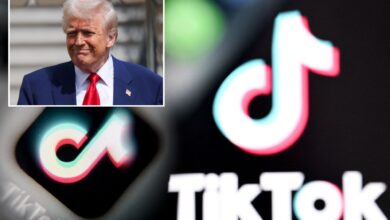Neuralink implanted second trial patient with brain chip, Musk says

Neuralink has successfully implanted in a second patient its device designed to give paralyzed patients the ability to use digital devices by thinking alone, according to the startup’s owner Elon Musk.
Neuralink is in the process of testing its device, which is intended to help people with spinal cord injuries.
The device has allowed the first patient to play video games, browse the internet, post on social media and move a cursor on his laptop.
Musk, in comments made during a podcast released late on Friday that ran more than eight hours, gave few details about the second participant beyond saying the person had a spinal cord injury similar to the first patient, who was paralyzed in a diving accident. Musk said 400 of the implant’s electrodes on the second patient’s brain are working. Neuralink on its website states that its implant uses 1,024 electrodes.
“I don’t want to jinx it but it seems to have gone extremely well with the second implant,” Musk told podcast host Lex Fridman. “There’s a lot of signal, a lot of electrodes. It’s working very well.”
Musk did not disclose when Neuralink performed the second patient’s surgery. Musk said he expects Neuralink to provide the implants to eight more patients this year as part of its clinical trials.
The first patient, Noland Arbaugh, was also interviewed on the podcast, along with three Neuralink executives, who gave details about how the implant and the robot-led surgery work.
Before Arbaugh received his implant in January, he used a computer by employing a stick in his mouth to tap the screen of a tablet device. Arbaugh said with the implant he now can merely think about what he wants to happen on the computer screen, and the device makes it happen.
He said the device has given him a modicum of independence and reduced his reliance on caregivers.
Arbaugh initially faced issues after his surgery when the tiny wires of his implant retracted, resulting in a sharp reduction in the electrodes that could measure brain signals. Reuters has reported Neuralink was aware of this issue from its animal trials.
Neuralink has said it restored the implant’s ability to monitor Arbaugh’s brain signals by making changes that included modifying its algorithm to be more sensitive. Arbaugh has improved on his previous world record for the speed at which he can control a cursor with thoughts alone “with only roughly 10, 15% of the electrodes working,” Musk said on the podcast.
Musk also said he has spoken with Republican candidate Donald Trump, who he has endorsed in the US presidential race, about forming a commission aimed at improving “government efficiency” through reduced business regulation, and would be willing to participate.
Musk said that in his view US regulations hamper innovation.




